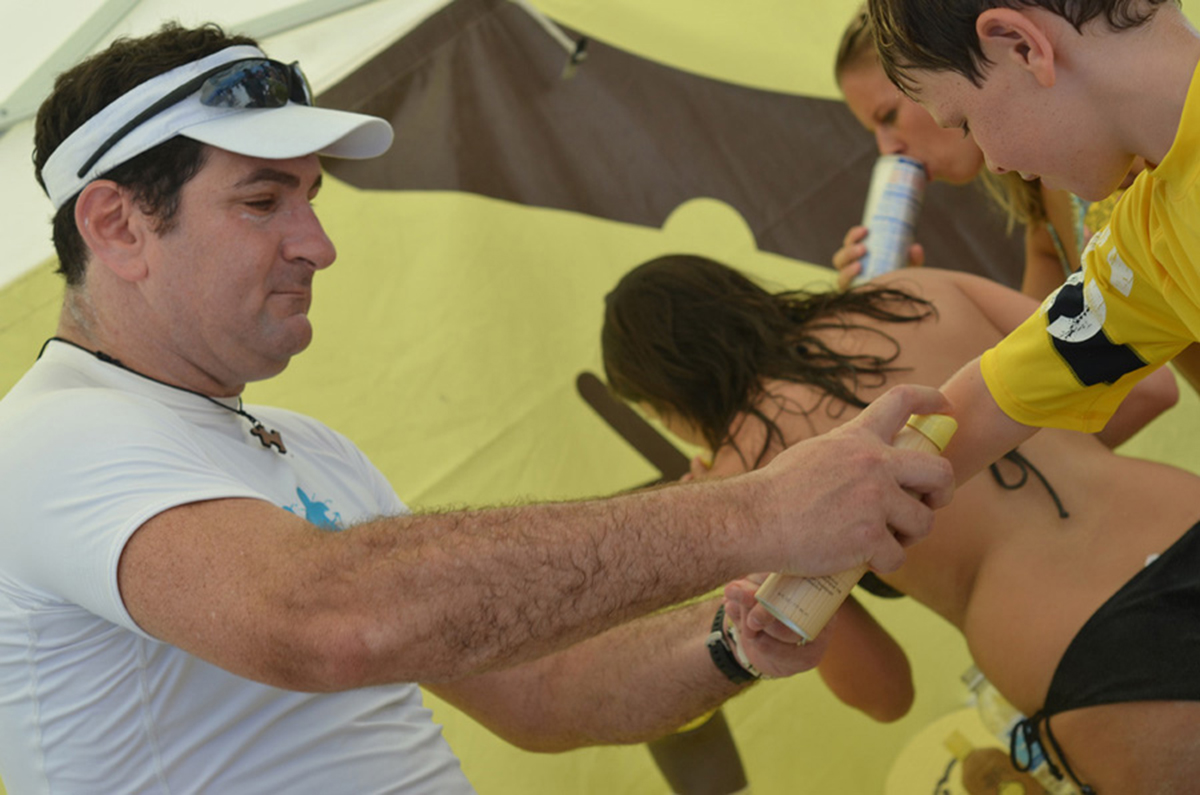Table of Contents
There are many, many myths about sunscreens and SPFs. Some people think that sunscreens are "useless" and won't bother using them - others use an "all-day" sunscreen formula and then sit in the sun all day. We want to bust some of those common myths and misconceptions so that you can stay safe in the sun this summer.

- SPFs are all you need. Wrong - SPFs filter out UVB rays only. We used to think that UVA rays were harmless, but with increasing medical research showing that UVAs are potentially more harmful than UVBs, it's now necessary to use a product that has "broad spectrum" protection, which means that it protects against both UVA and UVB rays.
- Mineral sunscreens are better for you than non-mineral sunscreens. There is a huge debate between mineral and non-mineral sunscreens, although the general medical opinion is that mineral sunscreens are better for the skin - mineral sunscreens (also known as physical sunscreens as they physically filter out rays without using chemicals) use titanium dioxide or zinc oxide and the nano or micro-sized particles in these sunscreens are not thought to penetrate skin. Non-mineral sunscreens (also known as chemical sunscreens) use octisalate, oxybenzone and avobenzone. Oxybenzone is thought to be the most potentially dangerous ingredient, as it can penetrate the skin, causing allergic reactions and disrupting hormones.
- If you wear all-day sunscreen, you can stay in the sun all day - right? Wrong. After four hours, at least 2/3 of your protection will be gone - either rubbed off or absorbed into the skin. You should always reapply your sunscreen after sweating excessively or going swimming, whether you're wearing an all-day sunscreen or not. It's also a good idea to reapply whenever your skin feels hot.
- Sunscreen is 100% protective as soon as you apply it. Unfortunately, this one is also incorrect. Sunscreen takes approximately 20 minutes to sink into skin, so it's best that you apply it before you leave the house.
- Darker skin doesn't need sunscreen. While melanin in darker skin offers some UV defense, it's not complete. Darker skin can still burn, age prematurely from sun exposure, and is susceptible to skin cancer. Everyone, irrespective of skin tone, should use sunscreen for comprehensive sun protection.
- Tanning beds are safer than the sun. Tanning beds emit UVA and UVB radiation, both of which can cause skin damage, premature aging, and increase the risk of skin cancer. Neither natural sun nor tanning beds offer a safe way to tan, making protective measures essential.
- Sunscreen doesn't expire. Sunscreen contains active ingredients that can degrade over time, reducing its effectiveness. Using expired sunscreen can compromise skin protection against UV radiation. Always check and adhere to the expiration date to ensure optimal sun protection.
Perhaps the biggest myth of all is that if you wear sunscreen and reapply it every few hours, that's all you need.
Although applying a sunscreen won't completely reduce your risk of skin cancer, it will definitely help. However, there is much, much more that you can do to reduce your risk, including staying out of the sun between the hottest hours of the day (usually 10am to 4pm), where possible, seeking shade, wearing a large-wide brimmed hat to protect your scalp and sunglasses that filter out UVA and UVB rays to protect your eyes and wearing light, loose clothing that covers and protects your arms and legs.
See Also: Ten Sunscreen Delusions
We're not trying to make you afraid of the sun - far from it. Keep safe and you can still enjoy a lazy day at the beach without having to worry about developing skin cancer! Plus, a little bit of daily sunshine does you some good - it helps your body make vitamin D but also improves mood and can even help you get a good night's sleep.
- www.macmillan.org.uk/Cancerinformation/Cancertypes/Skin/Aboutskincancer/Causes.aspx
- www.huffingtonpost.com/2013/06/19/sunscreen-benefits_n_3464687.html
- www.mnn.com/health/fitness-well-being/blogs/why-i-dont-wear-sunscreen
- news.discovery.com/human/health/sunscreen-what-to-know-120527.htm
- www.fitnessmagazine.com/fitness/printableStory.jsp?storyid=/templatedata/fitness/story/data/1149103108672.xml
- health.howstuffworks.com/skin-care/beauty/sun-care/spf.htm
- health.howstuffworks.com/skin-care/beauty/sun-care/how-often-apply-sunscreen.htm
- Photo courtesy of Jordan Fischer by Flickr : www.flickr.com/photos/jordanfischer/4745212376
- Photo courtesy of Robert Neff by Flickr : www.flickr.com/photos/5wa/7343475724

